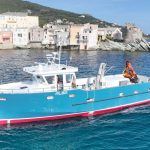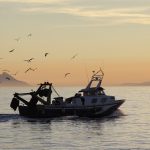Seafish, the authority on seafood, welcomes the publication of ‘Silent Seas’ for its emphasis on the effects of pollution and climate change, underlining that all human activity has an impact on the marine environment.
In the past, overfishing in UK waters has been a contributing factor but since the start of 2000 a combination of Government legislation and voluntary measures has led to strict controls of fishing stocks. Also, during this same period the industry has gone through considerable change, in particular, a significant decommissioning of vessels.
It is widely recognised that the UK fishing industry is leading the world in its responsible sourcing and management of stocks. Many examples over the years include, the Scottish mackerel fleet voluntarily fitted out their vessels with state-of-the-art sampling equipment to avoid catching juvenile mackerel, and fishermen have undertaken a voluntary initiative not to fish in waters around Lundy Island in order to preserve stocks.
In addition, in the last two years at least 40% of the UK fishing fleet* have signed up to the ‘Responsible Fishing Scheme’ which guarantees standards in the catching and handling of fish.
Jon Harman, Development Director of Seafish, says: “We need to recognise that an eco-system is a dynamic environment and constantly changing in response to a wide range of influences, some natural and some human-induced.
“Along with factors such as population change and widespread pollution, we now have stresses caused by climate change, which we are still trying to interpret.
“However, we are proud of how our fishing fleets have responded to increased understanding of their impact on the environment and their cooperation both in terms of voluntary action and investment in new technology”.
*41% by weight of over 10m vessels registered in the UK








